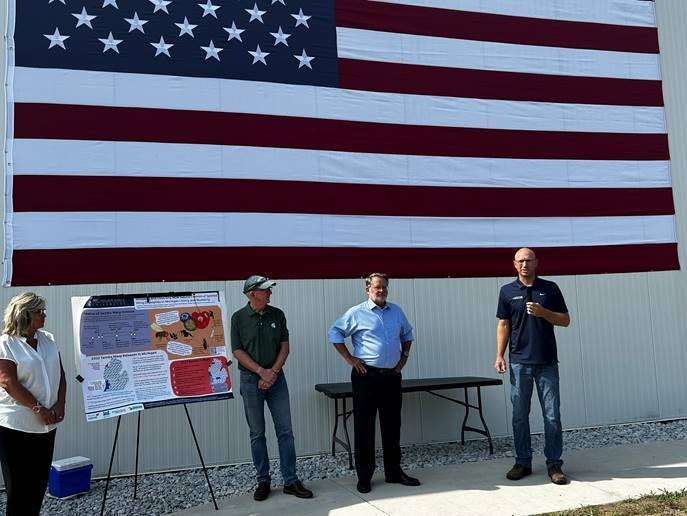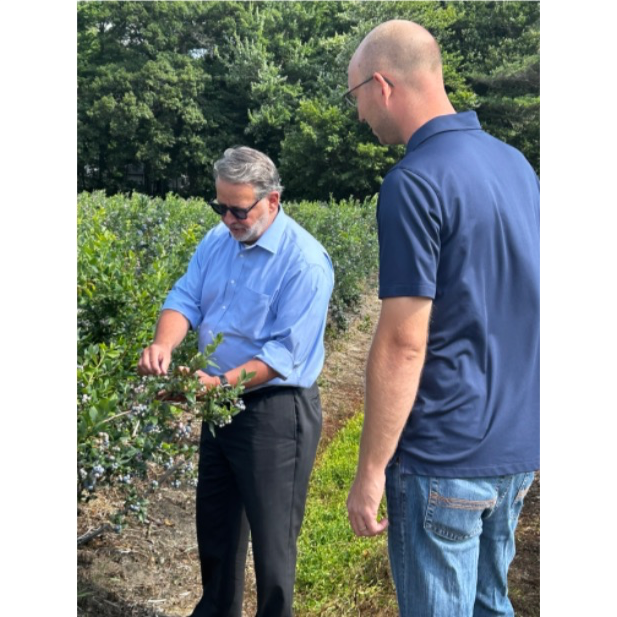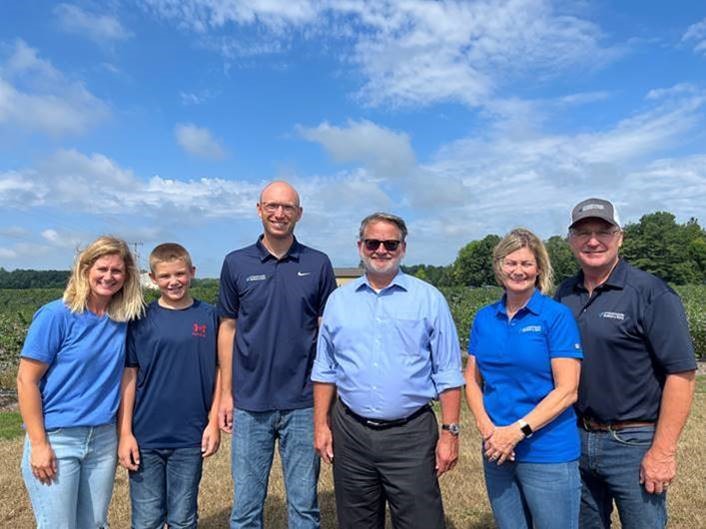PHOTOS: At West Michigan Blueberry Farm, Peters Highlights Need to Pass His SWAT Act to Address Invasive Fly Hurting Michigan Fruit Growers
Peters Is Working to Include His Bipartisan Bill in Upcoming Farm Bill; Bill Would Fund Mitigation Efforts & Advance Research on Spotted Wing Drosophila (SWD) Which Continue to Threaten Blueberry, Cherry & Other Fruit Crops
WEST OLIVE, MI – While visiting Crossroads Blueberry Farm in West Olive today, U.S. Senator Gary Peters (MI) talked about the need to pass his bipartisan SWAT Act, which would help reduce the spread of spotted wing drosophila (SWD). SWD is an invasive insect that continues to hurt growers in Michigan and across the country by laying their eggs in soft-skinned fruit crops such as cherries and blueberries, making entire crop loads unsellable. Peters’ Spotted Wing Abatement Trust (SWAT) Act would establish a fund managed by the U.S. Department of Agriculture (USDA) to strengthen efforts that mitigate the spread of this invasive pest, helping to keep costs down for growers and prevent their crops from being spoiled in the first place. Peters is pushing for the bill to be included in the 2023 Farm Bill.
“I’ve heard from growers all across our state about how this invasive fly is threatening their businesses and livelihoods by spoiling entire crop loads and making them unsellable,” said Senator Peters. “Many farmers are also incurring significant costs to both address and prevent these pests. That’s why I’m pushing to pass my bipartisan SWAT Act which would help combat this invasive species and protect Michigan growers.”
“When spotted wing drosophila lay their eggs in our crops, we are at risk of decreased yield because of fruit buyers’ zero-tolerance policy. This potential loss of crop is extremely harmful to our business and on top of that, we have to take matters into our own hands financially to try to tackle infestations,” said Luke DeHaan, owner of Crossroads Blueberry Farm. “Thank you Senator Peters for keeping this issue on the forefront and for working to pass the SWAT Act into law.”
“Michigan’s agricultural sector at-large – and particularly soft-skinned fruits like blueberries – are so important to our overall economy and producers throughout the region. But our Commission continues to hear from growers all across our state that these invasive pests are putting their livelihoods in jeopardy by rendering entire crop loads unsellable,” said Executive Director of the Michigan Blueberry Commission Nancy Nyquist. “It’s imperative that we protect this economic engine and the ability of farmers to do their jobs. Senator Peters’ bipartisan SWAT Act will help to address this issue by ensuring we’re both prepared and equipped to reduce the population of SWD.”
“It’s clear that more federal resources are needed to both improve our understanding of these invasive pests and provide farmers with effective tools to address infestations,” said Michigan State University Professor of Entomology Rufus Isaacs. “That’s exactly what Senator Peters’ SWAT Act would do and why I have worked hand-in-hand with Senator Peters on this bipartisan legislation to invest in advancing research, like the work we’re spearheading at MSU, and pest management strategies. The SWAT Act will move us closer to resolving this growing problem.”
Peters toured the farm’s processing facility and met with Crossroads Blueberry Farm owners, Dave Reenders and Luke DeHaan, to hear firsthand how SWD is impacting their crops, business, and livelihoods. Peters was also joined by Michigan Blueberry Commission Executive Director Nyquist and MSU Professor Isaacs – who is spearheading national research on- and developing effective pest management strategies for SWD. Peters also examined samba wasps – a natural predator to SWD and recently developed SWD mitigation effort.
To download photos from the visit, click here or on the images below. Images are courtesy of Senator Peters’ office.



###